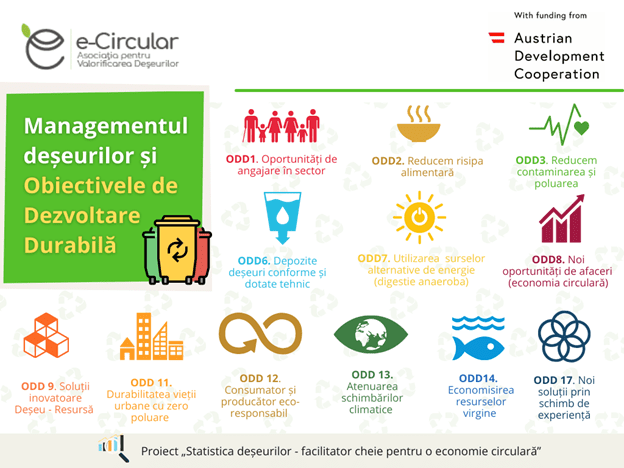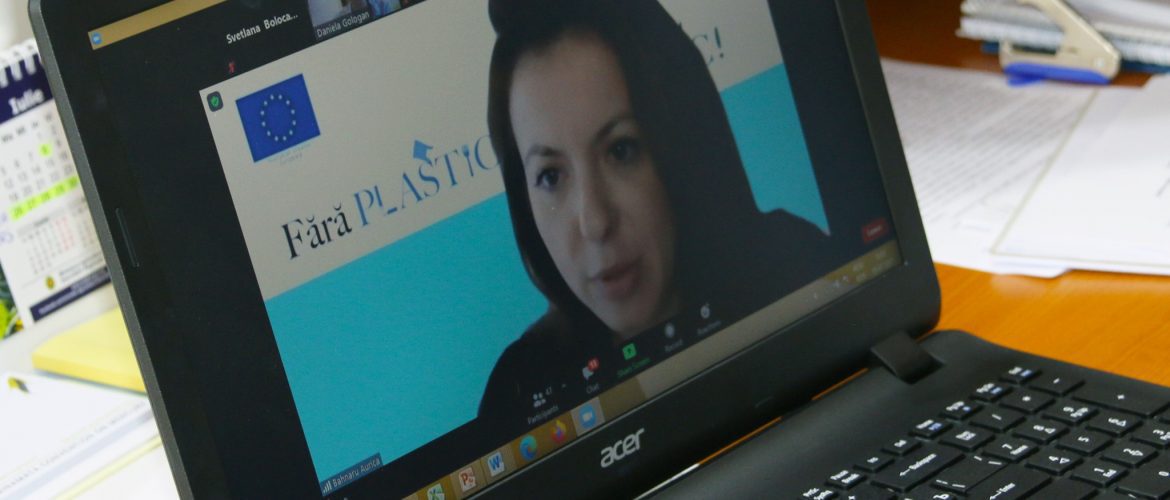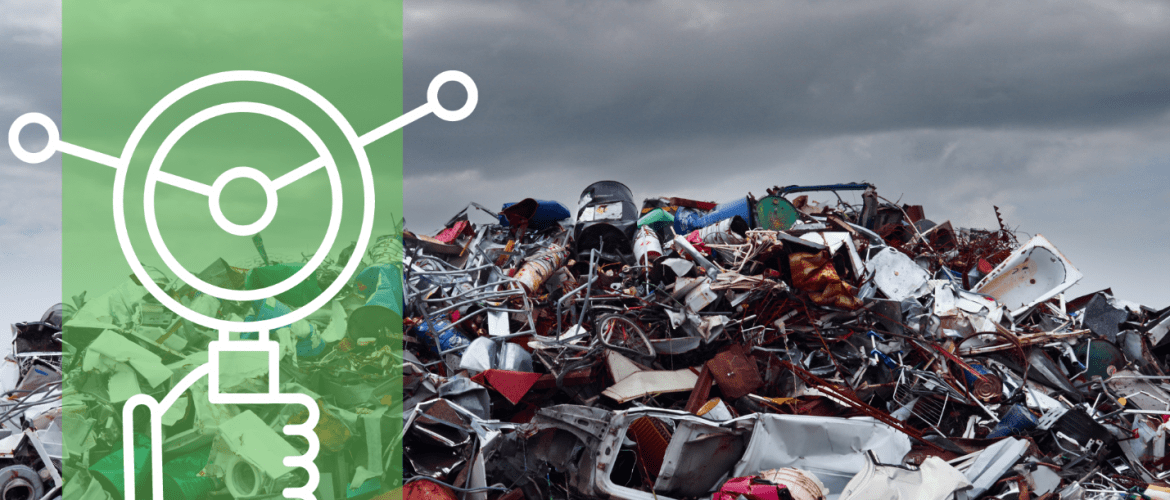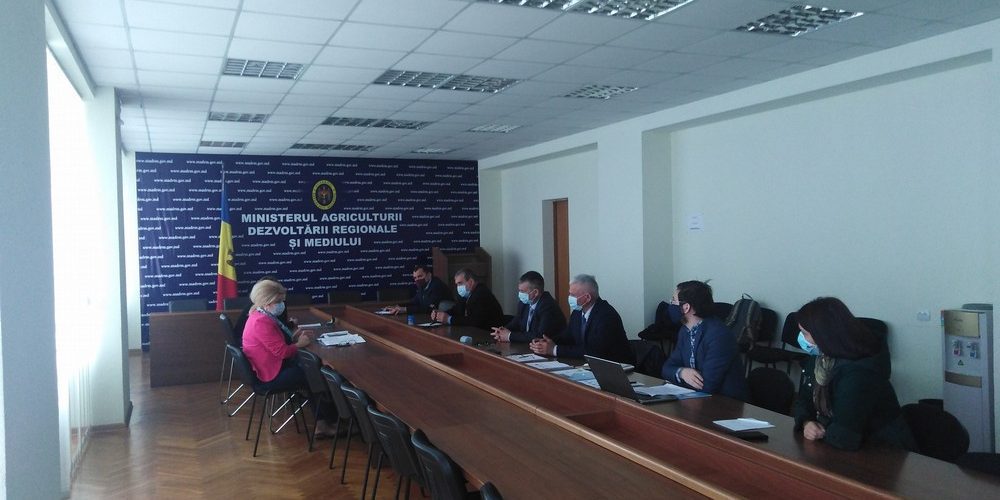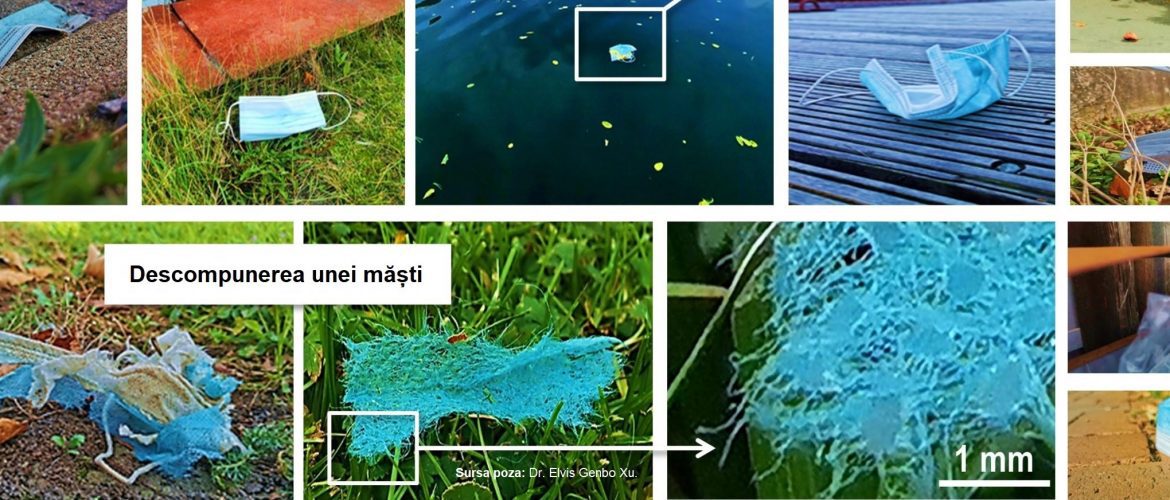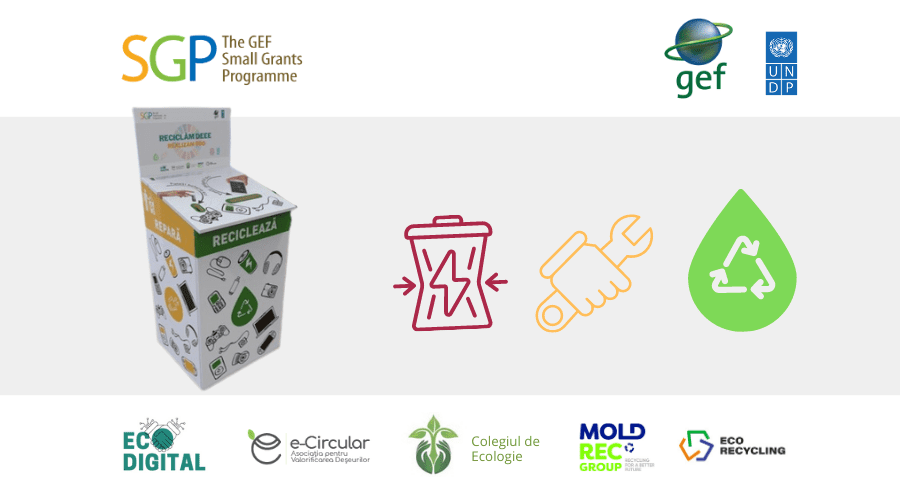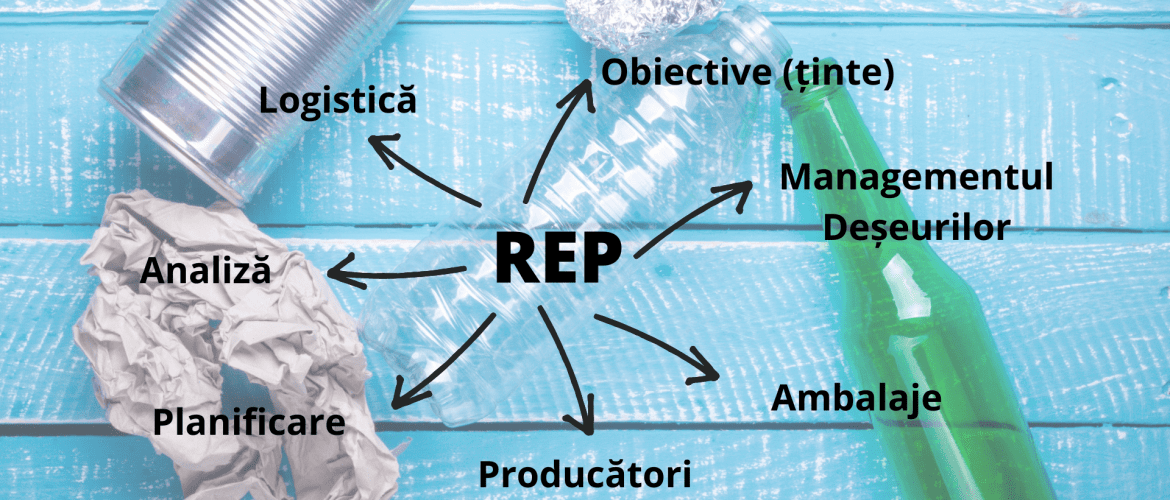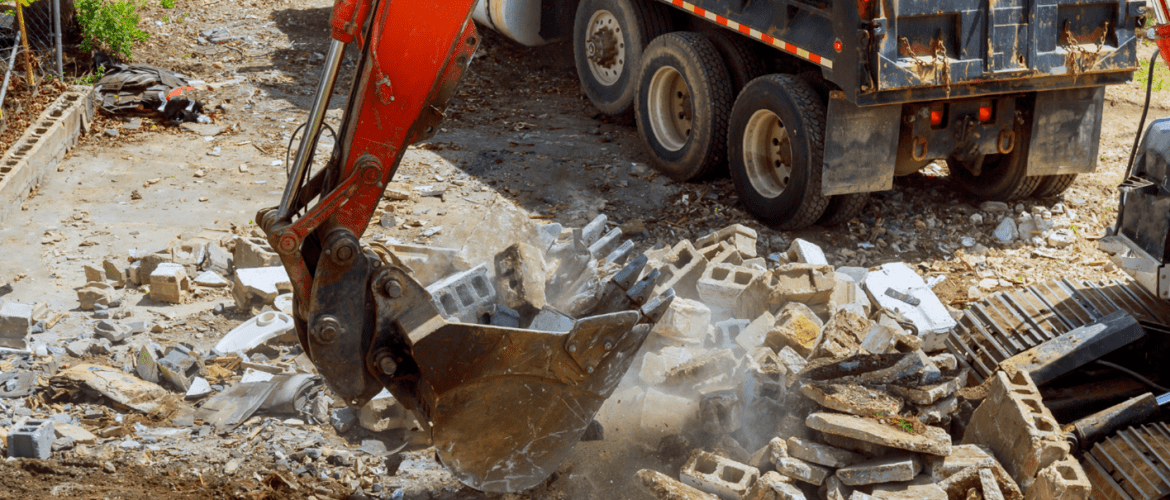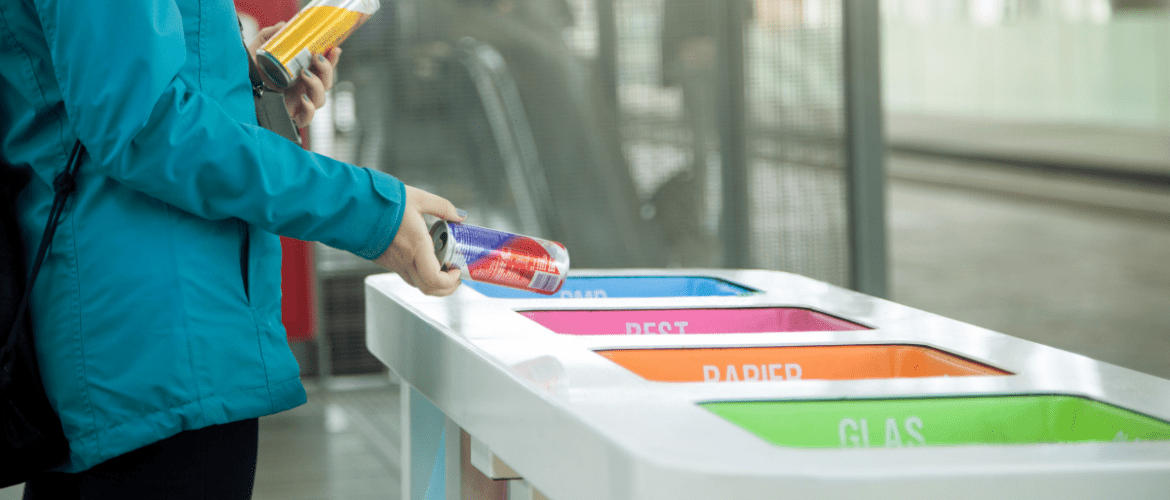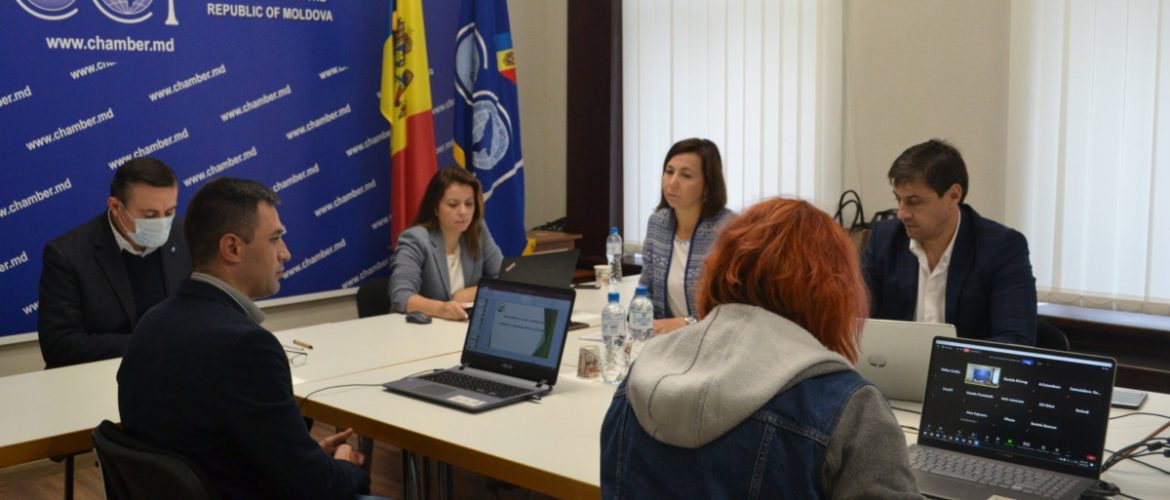In 2015, the United Nations (UN) launched several Sustainable Development Goals (SDGs), 17 in number, which by 2030 aim to improve the economic, social, climate, energy, etc. situation in 170 countries and territories of the world, including the Republic of Moldova. And the role of implementer of the objectives is played by the United Nations Development Program (UNDP), as a UN development agency. Solving one problem will solve 12 more From
On Monday, July 5, 2021, the AO Association for Waste Recovery officially launched the campaign at the national level - "Without Plastic I feel Fantastic", thus joining the global campaign #PlasticFreeJuly2021, attended by more than 300 million people worldwide. The event was organized with the financial support of the European Union within the Project "Development of the capacities of civil society organizations" which is a regional project implemented by ERIM (previously IREX Europe). During the launch event, representatives from
In accordance with GD 501/2018 for the approval of the Instruction on keeping records and transmitting data and information about waste and its management, all waste holders who generate more than 50 kg of hazardous waste or more than 1 ton of non-hazardous waste are dangerous, they have the obligation to report to the Environment Agency by April 30, 2021 through the "Waste Management" automated information system or on paper, the total amount of each category of waste per
In accordance with the provisions and targets The waste management strategy in the Republic of Moldova for the years 2013-2027 (HG 248/2013) as well as taking into account the provisions of regional sectoral programs, waste management is a national priority of the environmental pollution prevention policy in the Republic of Moldova. The aggravation of the problem of waste, especially solid household waste, is generated by the defective way in which different stages of waste processing are currently carried out. Promoting the regional approach in waste management planning
Until the outbreak of the COVID pandemic, plastic waste represented one of the most obvious sources of environmental pollution, difficult to manage, being produced over 300 million tons globally, 90 % of which are no longer recycled. Unfortunately, the pandemic has triggered an eminent danger to environmental security, due to the production and consumption of enormous amounts of protective materials, including masks. Recent studies estimate a global monthly consumption of 129
number electrical and electronic equipment waste collection points will increase from 128 to 200, thanks to a new project dedicated to e-Waste management, which was launched today, March 18, 2021, on Global Recycling Day. The points will be set up in Chisinau and other localities in the country. The "We recycle e-Waste, we achieve the Sustainable Development Goals" project is implemented by AO EcoDigital with the financial support of the GEF Small Grants Program, implemented by UNDP Moldova, in partnership with AO Association for
Most recently, in July of this year, the Regulation on packaging and packaging waste was approved by Government Decision no. 561 of 31.07.2020 and which will enter into force in August 2021. In accordance with the provisions of this Regulation, producers of packaging waste of various types, regardless of how (individually or collectively) will be responsible for organizing the process of proper waste management generated, and starting in 2023, they will also be responsible for reaching premiums
Construction and demolition waste (DCD) = waste resulting from construction, renovation, rehabilitation, repair, consolidation, demolition of civil constructions, industrial constructions, building structures, transport infrastructure as well as dredging and unclogging activities , including soil excavated from contaminated sites. They are generated through a discontinuous process and their composition is very heterogeneous, containing remnants of construction materials, chemical products and other auxiliary materials. Aroape 80% from the amount of debris generated results from construction
Given the recent approval of the Regulation on packaging and packaging waste by HG no. 561/2020 of 31.07.2020, producers of packaging waste of various types, no matter in which way (individual or collective), will be responsible for organizing the process of proper management of the generated waste. In this context, starting in 2023, they will also be responsible for reaching the first recycling recovery targets. More recently, the Ministry of Finance, during the working session organized on the platform of the Economic Council at the request of the Business Association
Today, at the invitation Chamber of Commerce and Industry of the Republic of Moldova (CCI of the Republic of Moldova), Association for Waste Recovery and the Environment Agency continue the dialogue on the dimension of efficient waste management and direct management of electrical and electronic equipment waste. An increased focus was given to WEEE producers and their extended responsibility (REP), good practices and management solutions for this waste, the legislative framework regarding EEE, the obligations of producers and distributors, but also the sanctions on

